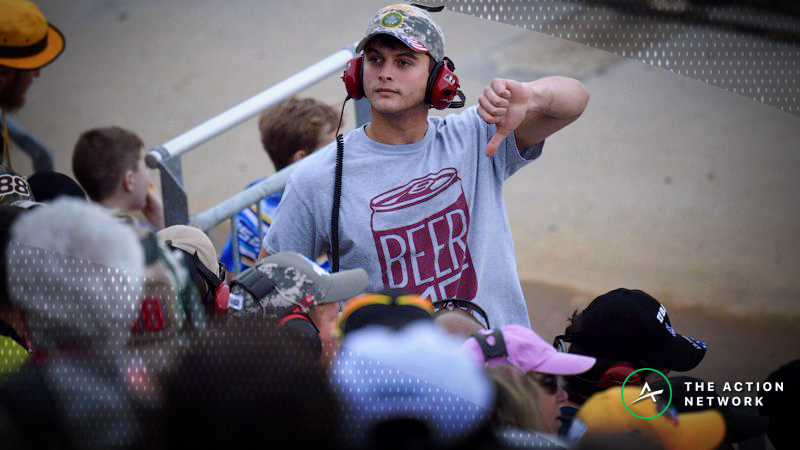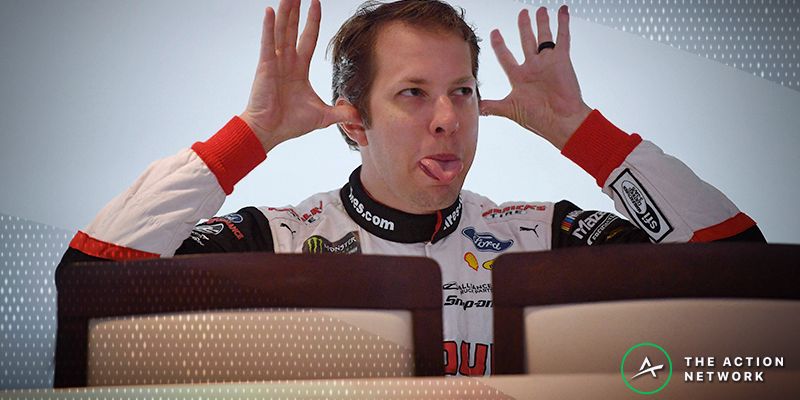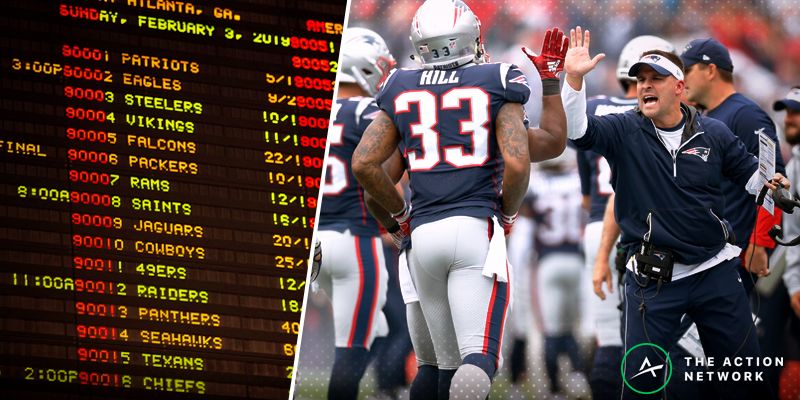Can Sports Betting Legalization Save NASCAR?
- In recent years, NASCAR has faced declining attendance and TV ratings, especially compared to the boom it experienced in the 2000s.
- Legalized sports betting will undoubtedly bring more eyeballs to all sports, but can NASCAR use it to jump-start interest?
- NASCAR faces roadblocks regarding the advantages of legalized sports betting, many of which are unique to the sport itself.
I represent everything that is wrong about being a sports fan in New England. I love the New York Yankees, tease Patriots fans about Tom Brady losing to Eli Manning (twice), prefer college basketball over the NBA and absolutely love NASCAR.
But when it comes to my NASCAR addiction, it wasn't always this way. I was born in New Jersey and moved to North Carolina in 1993 with not even the slightest interest in cars driving in circles. It wasn't until my sophomore year at Appalachian State University that I truly got the bug.
My fraternity took part in a fund-raiser at Bristol Motor Speedway, 60 miles from Boone, N.C., working a credit-card booth inside the track. Once done at the booth, we were free to stay and watch the race. While I'll spare the nitty-gritty details (such as seeing two fans wheel a pony keg to their seats on a hand truck), I was immediately hooked.
I walked into that racetrack with NASCAR easily my least favorite sport, and walked out with it being the new apple of my eye.
There's no denying that with paltry attendance numbers and plummeting TV ratings, the sport is dying a slow death. As a die-hard fan, the health of NASCAR is important to me. And I couldn't help but wonder: Can legalized sports betting help fix what's ailing the sport?
NASCAR's Problem
The sport as a whole is tanking. Attendance is down, television ratings are plummeting and sponsors are leaving. Exacerbating the problem is that most people close to the sport, including executives, teams and fans, continue to focus on the symptoms as opposed to the real issues facing NASCAR.
Fans often complain about wanting more short tracks that offer more beating and banging, and fewer intermediates that rely heavily on downforce and therefore inspire follow-the-leader racing. Well, current short tracks on the schedule such as Martinsville and Bristol aren't selling out, so how would more short tracks help?
Fans also talk about rising ticket, hotel and fuel prices as reasons they're no longer attending. Sure, costs affect everything, but why aren't these fans still watching at home if they can't attend? The home-viewing experience has never been better than it is today, so this argument doesn't hold water either.
In response, NASCAR's sanctioning body has tried to bring back fans by making the on-track racing more exciting with the addition of stage racing, by removing downforce from the aero packages and increasing tire wear to promote more passing. It has even tried restrictor plates at more tracks to keep cars bunched together.
Obviously a more exciting product on the track is good for the sport, but NASCAR's current strategies aren't doing anything to fix the sport's true problems.
In the 2000s, NASCAR experienced incredible growth with booms in both attendance and TV ratings. I was part of this explosion, as was my group of friends. Living in North Carolina in my mid-20s, I regularly attended six to eight races per year and brought along swarms of friends and family members with me, including introducing the sport to many, who had no interest in racing up to that point.
But eventually life happens. My job relocated to Massachusetts, I got married and had kids. All of that free time I enjoyed a decade ago has gone the way of the dodo. While I'd still love to attend races, those days are over. And the majority of my friends are in the same boat I am. And therein lies the problem.
The racing, cars, number of cautions, etc. aren't the issue, it's that the sport never reloaded the fan base from the 2000s that has since aged out. My generation of NASCAR fans has other priorities now, and those trump live sporting events.
But people in their 20s have oodles of free time and disposable income. They're the market advertisers want to reach, and at the moment NASCAR doesn't have much appeal to them.
Enter NASCAR Betting
If implemented and marketed correctly, legalized sports betting should certainly move the needle in some capacity, but there are a lot of roadblocks standing in the way of it ultimately having a real impact on interest in the sport.
The first issue is that NASCAR's foray into daily fantasy sports (DFS) has been embarrassingly inadequate, especially in terms of content and promotion. DraftKings began offering NASCAR contests during the 2015 season, and content providers — both digital and TV — still have no idea how to cover and market the game.
There's very little DFS coverage on NASCAR's own website, NASCAR.com, and basically nothing during television broadcasts except for signup offers. The only content I've noticed on a regular basis includes "experts" such as Bobby Labonte and Jeff Hammond making picks throughout the week on Fox Sports 1's NASCAR Race Hub.
First off, making picks before qualifying is pointless due to DFS scoring rules that heavily weigh starting position. But from a higher level, hardcore NASCAR fans are the only ones who watch shows such as NASCAR Race Hub. If you're marketing fantasy only to hardcore fans, you're missing out on using it to generate interest from those not already following the sport.
In addition, NASCAR DFS contests regularly fill on DraftKings, yet the sport continues to ignore the interest. Does this mean NASCAR won't learn from its DFS mistakes and get it right with betting? No, but let's just say my confidence level is low.
Outside of content and marketing, NASCAR faces other challenges standing in the way of a potential bump from legalized sports betting. It's no secret that NASCAR's fan base largely derives from conservative Southern states that aren't as progressive about gambling as the rest of the country.
As recently as last month, 27 states had yet to even consider sports betting legislation, including NASCAR hotbeds such as Georgia, North Carolina, Tennessee, Florida, Alabama and Virginia.
Even if NASCAR did have a plan to properly leverage legalized sports betting into more eyeballs — which is a massive "if" — the sport's conservative fan base will likely prevent executives from even trying it.
The bottom line is that as much as I believe in sports betting's ability to create more interest for most sports, I'm afraid it's not the savior NASCAR so desperately desires.
NASCAR's Ace in the Hole
So if betting isn't the answer, what can NASCAR do? Just like I mentioned in the intro, NASCAR's biggest advantage over every other sport is the fan experience at the track. And yes hockey fans, it's even better than the NHL's.
It's what converted me to a NASCAR die-hard, and also what drove the attendance and ratings booms in the 2000s. The sport needs to reload the fan base by getting the younger demo back to the racetrack.
There is frankly no substitute for spending the day playing cornhole, grilling and drinking beverages with friends and family before heading into the race with a cooler full of said beverages (yes, you can bring your own beer into the race at most racetracks) and not just seeing, but feeling these cars live.
Eventually, there is a place for sports betting in NASCAR, especially at the racetrack somewhere down the line, but I'm afraid it may not matter if the sport can't find a way to convince new fans to experience the live product first.
How would you rate this article?





